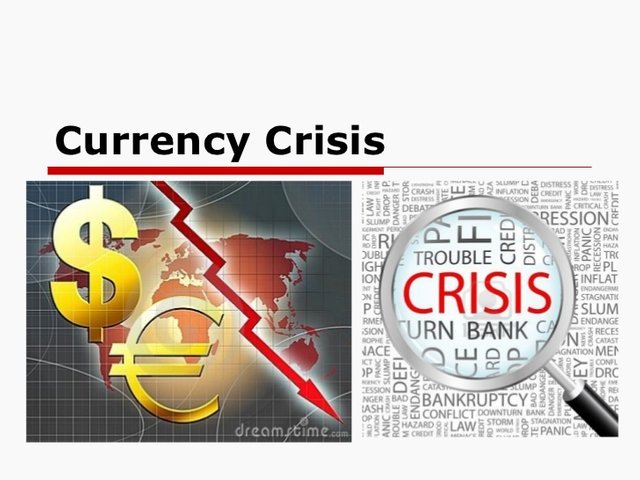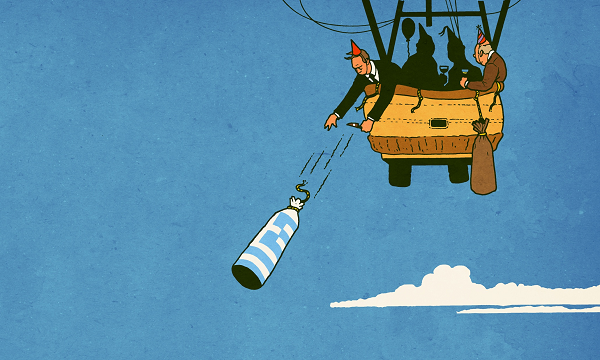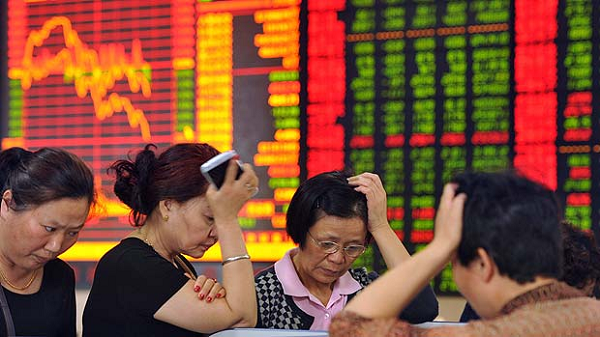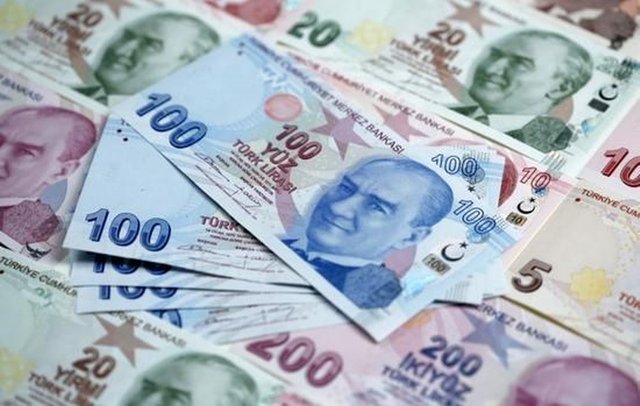Currency crisis - Case of Turkey

A currency crisis is defined by the depreciation of a country's currency. This decline in value negatively affects the economy by creating volatility in the exchange rate, which means that one currency can no longer buy as much or no exchange. Get more coins as before.
To simplify the problem, we can say that from a historical perspective, crises erupting due to the investors' strong hope. Since the beginning of the 1990s, there have been many instances in which the currency crisis has been described by investors as a major global crisis, causing a decline in capital.
The role of government, central banks and investors in the currency crisis
The central bank in the fixed exchange rate economy is trying to maintain the current fixed exchange rate by "eating" into the country's foreign exchange reserves or floating the exchange rate in the face of scenario of monetary crisis.
First, let's explain why tapping into foreign currency reserves is a potential solution. As market expectations decline, the pressure to depreciate the currency and the only way to save is to raise interest rates. To raise interest rates, the central bank must reduce the money supply, thus increasing demand for the currency. Banks can do this by selling foreign exchange reserves to create capital flows. When a bank sells part of its foreign currency reserves, the bank will receive a payment in the local currency that is then treated as a bank and means that the circulation loses a local currency.
Central banks are unable to withstand the exchange rate in the long run due to a gradual decline in foreign exchange reserves as well as political and economic factors, such as rising unemployment. Devaluing currencies by raising fixed exchange rates also leads to inward goods cheaper than foreign ones, increasing demand and increasing output.
In the short run, devaluation also raises interest rates, the central bank offset by increasing money supply and increasing foreign exchange reserves.
Investors are well aware that in this case, using a devaluation strategy can make a profit. If the market expects the central bank to devalue its currency (and increase its exchange rate), then it is unlikely that the promotion of foreign exchange reserves through aggregate demand increases. Instead, the central bank must use its reserves to curb the money supply, raising interest rates in the country.
Deeper analysis of the currency crisis
Investors will often try to withdraw their money if their belief in the economy falls. This is called a capital flight. They withdraw their capital by selling stocks back to the market or liquidating their currency investments, for the country they are converting their investments into foreign currency. This will make the exchange rate worse, and the country's capital reserves will also decline, leading to the risk of a crisis.
Predictions for currency crises involve analyzing a complex and varied set of variables. There are several common elements of the recent crises:
· National debt too much (current account deficit)
· Currency values increase rapidly
· Uncertainty about government action has made investor confidence unstable
Let's look at some crises to see how they happen:
Severe borrowers (current account deficits)
Currency appreciation increases
Uncertainty over government action has made investors unstable

Let's take a look at some of the crises to see how they happen to investors:
Example 1: Latin American Crisis of 1994
On December 20, 1994, the Mexican peso depreciated. Previously, the Mexican economy has risen sharply since 1982, when it experienced last-minute volatility and high Mexican interest rates.
Several factors contributed to the 1994 crisis:
1 / Economic reform since the late 1980s, designed to curb inflation at that time and start reacting when the economy weakens.
2 / The assassination of a presidential candidate in Mexico in March 1994 has raised fears of political instability.
3 / The central bank is holding foreign currency reserves of about $ 28 billion, which is expected to remain stable for the peso. In less than a year, reserves have dried up.
4 / The central bank begins to convert short-term debt, denominated in pesos, into dollar-denominated bonds. The transition led to a reduction in foreign exchange reserves and increased debt.
When the government decided to devalue currency in December 1994, this was a major mistake.
But the result was that the currency was unstable as the exchange rate dropped to record lows. The government fires by raising interest rates to 80%, but the crisis is finally over. with an emergency loan from the United States.

Example 2: Asian Crisis of 1997
In those years, Asia emerged as Southeast Asia was home to the "tiger" economy and the Southeast Asian crisis. Foreign investment poured in for years. Underdeveloped economies suddenly experienced rapid growth and high exports.
The rapid growth is due to capital investment projects, but the overall productivity does not meet expectations. While the exact cause of the crisis is disputed, Thailand is the first country in trouble.
Like Mexico, Thailand is heavily dependent on foreign debt, leaving it vulnerable to lack of liquidity. Mostly, real estate investment dominates but is not managed effectively. The large current account deficit maintained by the private sector, increasingly dependent on foreign investment at floating rates. This has made the country face many foreign exchange hikes.
This risk comes as the US increases interest rates in the country, which reduces the amount of foreign investment in Southeast Asian economies. Suddenly, the current account deficit became a major problem and the financial spread rapidly developed. The Southeast Asian crisis originates from a number of key points:
When the exchange rate becomes very difficult to maintain, many currencies in Southeast Asia decline.
The Southeast Asian economies have a rapid increase in private debt.
Foreign investment has a speculative part where the risks involved are enormous.
Study in case of Turkey (EU)

10/08/2018, The Lira has a "steaming" 18% of its value, the biggest drop in a day since the 2001 financial crisis in Turkey.
It was not until the 10th of August that the Lira fell, but the exchange rate has been sluggish due to market concerns about Erdogan's influence on Turkish monetary policy. The one-off relationship between Turkey and the United States has given investors more reason to sell Lira, Reuters news agency reported.
Influence from Turkey spread throughout the global market, with European stocks most affected by investors worried about the Turkish banks holding assets in Turkey. The key indicators of European stocks plunged 1-2%. US stocks also closed Friday in red.
Since the beginning of the year, the Lira has depreciated by more than 40%. The currency fell to a record low on Friday after Trump announced it would sanction Ankara for a number of issues between the two countries, including the arrest of the American pastor.
In a statement on the same day, the US president doubled tariffs on aluminum and Turkish steel to 20% and 50%, respectively, a move Ankara said was contrary to the World Trade Organization World Trade Organization (WTO).
On Twitter, Trump stressed that the Turkish Lira is "plummeting against our very strong dollar! Our relationship with Turkey is not good at this time."
An important emerging market, Turkey is close to Iran, Iraq and Syria, and has been a staple in the West for decades. The financial crisis in Turkey is likely to push up turmoil in an area that is volatile.
Mr Erdogan is not only nameless but in a statement that supporters of the unsuccessful coup in Turkey two years ago has attacked the country in new ways since He was re-elected President 2 months ago. Turkey says the 2016 coup plan was snatched by an exiled Muslim cleric in the United States.
America's pastor
There are contradictions between the United States and Turkey, but the biggest and most heated argument at the moment lies in the fate of American Christian priest Andrew Brunson. Mr Brunson is currently being tried by Turkey for terrorism-related charges. The pastor was accused by Ankara of backing a group after a failed coup two years ago - an accusation Mr Brunson denies.
Turkish officials have come to Washington this week to discuss the fate of Rev. Brunson, but no breakthrough has been made.
In addition, Turkey wants the US to extradite priest Fethullah Gulen, a Turkish citizen living in Pennsylvania, whom Ankara considers to be a major striker in 2016. Gulen denies the allegations.
The crisis in Turkey has pushed assets off sell in other emerging markets on Friday, reviving the "ghost" of the spillover which is the weakness of emerging markets in many ways. last decade.
The sale of Lira copper has raised concerns about whether heavy Turkish debtors could repay in euros and dollars after years of foreign debt to pour money into the construction fever since he Erdogan came to power.
Erdogan, meanwhile, argues that "interest rate lobbying" is shady and Western rating agencies are deliberately damaging the Turkish economy - calling for people to show up. patriotism.
"If someone is raising dollars or gold under a pillow, bring it back to Lira at our banks." This is a national battle, Erdogan told the crowd in the northeastern city of Bayburt. Turkey.
"Some countries have acted to protect the coup plotters, and have no knowledge of law or justice," Erdogan said. "Relations with such behavioral countries have fallen to the point where they can not be saved," Erdogan said, simultaneously warning people of an "economic war."
Turkey has an Incirlik air base used by US forces in the Middle East. In addition, Turkey is also home to an X-band radar, an important part of NATO's defense system against Iran.
The United States is increasingly using economic sanctions against rival countries like Iran and North Korea, but rarely use tariffs - which are used only in trade disputes. - to respond to the opponent in political conflict as in the case of Turkey.
Will there be urgent action?
Despite rising rents, food and gasoline in Turkey, Mr Erdogan still has strong support from the people.
"Do not forget this: if they have dollars, then we have justice and God!" Mr. Erdogan said on August 10. "We will be able to overcome the economic war successfully."
Exposure to CNN Money, senior currency strategist Rodrigo Catril of the National Australia Bank, said that in addition to the US-Turkish tensions, investors are concerned about rising inflation in Turkey and the level independent of the central bank of this country.
Under pressure from Erdogan, the central bank of Turkey had to keep interest rates low, although inflation has exceeded the 15% threshold in July. In a recent meeting, the Central Bank of Turkey continues Going back to market expectations when keeping interest rates unchanged. Analysts say that could make Erdogan happy, but it is likely that the Turkish central bank will be forced to take urgent action.
"But there is good reason to believe that raising the emergency interest rate in the current currency crisis can only be temporary," said William Jackson, Capital Markets Emerging Economist. Economics, commented. "It is unclear whether Turkey can escape the current situation."
The Turkish government has cut its economic growth forecast for 2018 to 4% from the previous 5.5%, but experts warn that the decline will deepen if confidence is not restored soon. .
"It is unlikely that a recession and a debt crisis will force Turkey to implement capital controls and request the International Monetary Fund (IMF) rescue," European economist Carsten Hesse of Berenberg.
Although Erdogan made tough statements, the Turkish Foreign Ministry called for dialogue to resolve the problem with Washington. Turkish Minister for Trade Ruhsar Pekcan said "We urge President Trump to return to the negotiating table."
Investors have long called for policy signals to help restore confidence in Turkey. Turkish President Tayyip Erdogan has been criticized for not allowing the central bank sufficient independence in raising interest rates, despite the overheating economy and inflation exceeding 15%, far exceeding the target of 5%.
The weakened Lira also created a catastrophe with Turkey's debt repayment process, making it all the more difficult for Ankara to rely heavily on outside capital. Turkey's external debt is equivalent to 50% of GDP.
The bottom line
Currency crisis can take many forms, but most are formed when investor sentiment and expectations do not match the economic outlook of the country. While growth in developing countries is generally positive for the global economy, history has shown us that rapid growth can create greater uncertainty and crisis rates. . Although central bank regulation is tight and effective, it can reduce the rate of crisis but is generally unpredictable.
Reference
- Picture: Google.com
- https://en.wikipedia.org/wiki/Triffin_dilemma
- https://en.wikipedia.org/wiki/Currency_crisis
- https://en.wikipedia.org/wiki/Venezuelan_banking_crisis_of_1994
- https://en.wikipedia.org/wiki/1997_Asian_financial_crisis
- https://www.reuters.com/article/us-turkey-currency-erdogan/turkey-says-has-action-plan-to-ease-market-concerns-lira-firms-from-record-low-idUSKBN1KX0IH
- https://en.wikipedia.org/wiki/Turkish_currency_and_debt_crisis,_2018
Thanks for reading!

Hi @phungminhtuan, you have received an upvote from
phungminhtuan. I'm the Vietnamese Community bot developed by witness @quochuy and powered by community SP delegations.Congratulations! This post has been upvoted from the communal account, @minnowsupport, by phungminhtuan from the Minnow Support Project. It's a witness project run by aggroed, ausbitbank, teamsteem, someguy123, neoxian, followbtcnews, and netuoso. The goal is to help Steemit grow by supporting Minnows. Please find us at the Peace, Abundance, and Liberty Network (PALnet) Discord Channel. It's a completely public and open space to all members of the Steemit community who voluntarily choose to be there.
If you would like to delegate to the Minnow Support Project you can do so by clicking on the following links: 50SP, 100SP, 250SP, 500SP, 1000SP, 5000SP.
Be sure to leave at least 50SP undelegated on your account.
Congratulations @phungminhtuan! You have completed the following achievement on Steemit and have been rewarded with new badge(s) :
Click on the badge to view your Board of Honor.
If you no longer want to receive notifications, reply to this comment with the word
STOPTo support your work, I also upvoted your post!